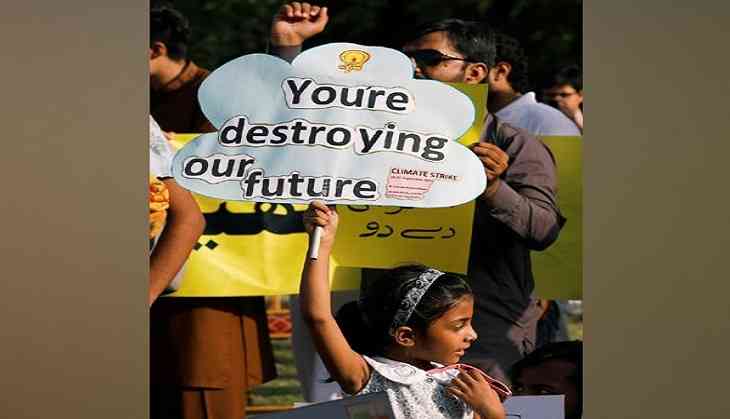Climate change: Pakistan faces existential crisis

As per the UN's Intergovernmental Panel on Climate Change (IPCC) latest report of August 2021, Pakistan is facing an existential crisis.
Erum Haider, writing in Al Jazeera said that the IPCC report, warning of melting glaciers, should be a wake-up call for the Pakistani state.
Pakistan has more glaciers outside of the polar icecaps than anywhere on earth. Roughly 75 per cent of Pakistan's 216 million population is settled on the banks of the Indus River. Its five largest urban centres are entirely dependent on the river for industrial and domestic water.
Pakistan has been blessed with regular agricultural cycles that have sustained its economy through successive crises. However, if the IPCC Report is correct - which it almost certainly is - by 2050, the country will be out of water, says Haider.
Pakistan is not the only low-income country facing the impacts of climate change. It is not alone in looking on helplessly as industrialised nations - China and the US being the foremost - drag their heels on lowering emissions, reported Al Jazeera.
As per the reports, this year has been one of the hottest and most devastating summers on record - floods in northern Europe and China, wildfires in the US, and heatwaves everywhere.
Pakistan, like the Maldives and many other island nations, will suffer from the consequences of global warming disproportionately.
However, unlike many countries that have taken up the issue of global emissions at the UN, Pakistan is not doing even the bare minimum to try and secure its future, retorts Haider.
To say that this is the largest security issue the country will face in the next few decades would be putting it mildly. No other country is as dependent on non-polar ice for freshwater as Pakistan. No other country stands to lose as much. Yet, Pakistan's government seems singularly unaware of the looming crisis, added Haider.
Pakistan has not even made much effort to meet its target of producing 60 per cent of its electrical power from renewable sources by 2030. At the moment, the country still gets well over 60 per cent of its electricity from fossil fuels, reported Al Jazeera.
Pakistan is already facing mounting environmental challenges. Heatwaves are killing scores of people and impacting crop cycles and yields on a regular basis. This year, both its largest city Karachi and its capital city Islamabad experienced devastating floods.
Furthermore, the 806-kilometre (500-mile) Karakoram Highway, which is a critical part of Pakistan's economic corridor with China, was shut down multiple times, for multiple days, due to landslides.
These devastating landslides were a direct result of large-scale deforestation in the area north of Kohistan and south of Jaglot.
Further north towards Shimshal and east towards the Skardu Valley, timber mafias are rapidly stripping old-growth forests, all but guaranteeing future environmental catastrophes reported Al Jazeera.
As this year's IPCC report underlined, we are, sadly, already too late to reverse the damage caused by the rampant consumption of fossil fuels. The choice we are facing now - in Pakistan and around the world - is to continue on a path to certain destruction, or start fighting for our collective survival, said Haider.
(ANI)

